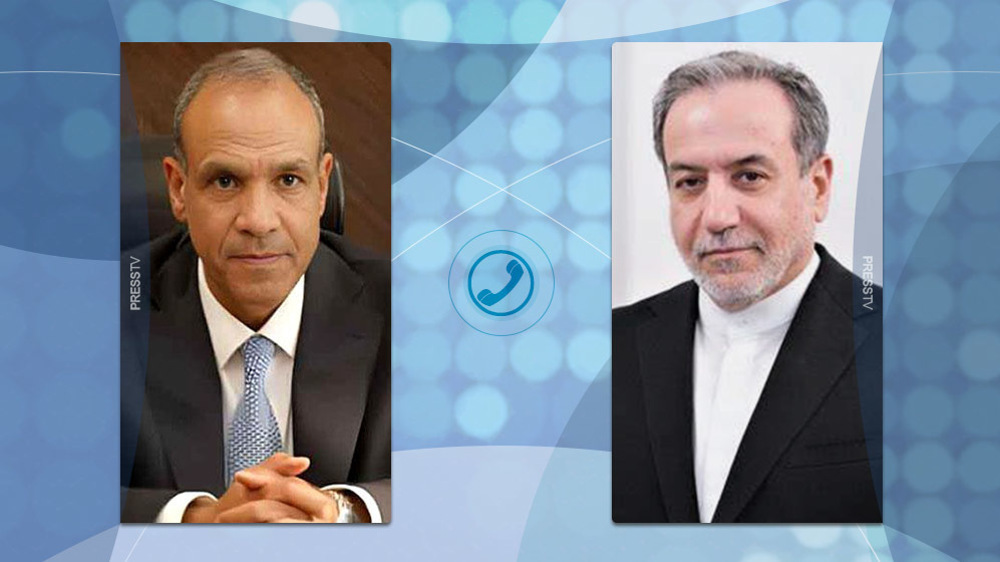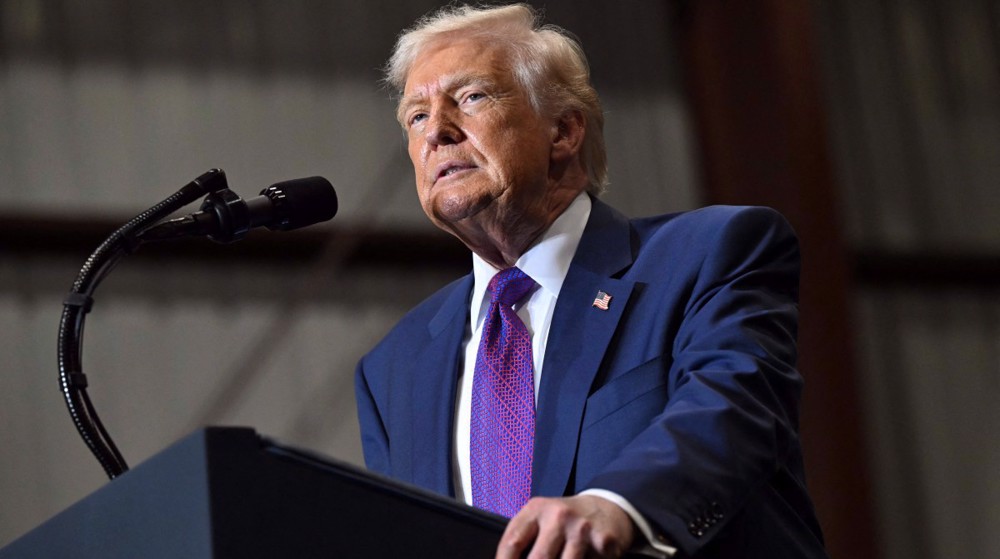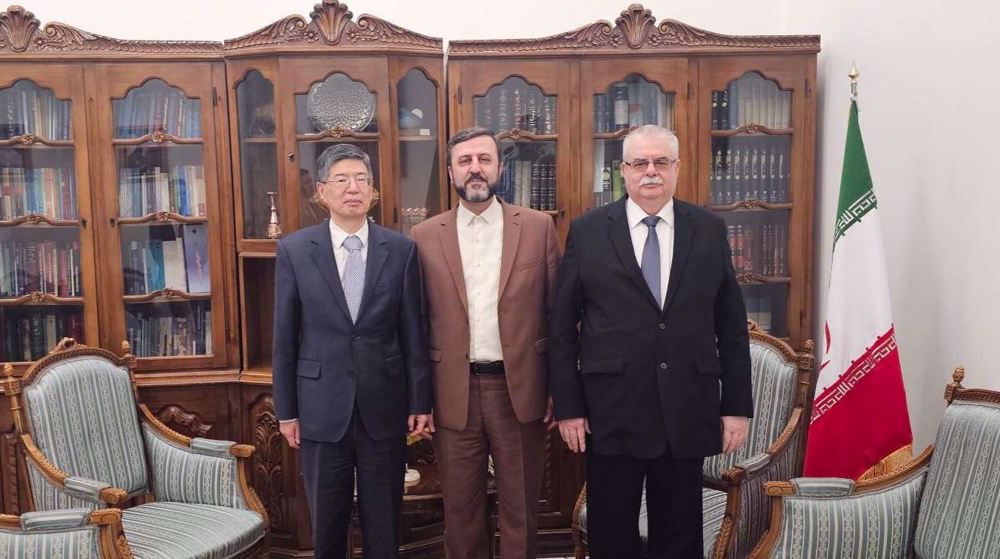EU, Russia, Germany warn against efforts to undermine nuclear talks after Natanz incident
The European Union has warned against attempts to derail talks aimed at reviving a landmark 2015 nuclear deal signed between Iran and major world powers after a terrorist attack by Israel on Iran's Natanz nuclear site.
EU spokesman Peter Stano said on Monday that the Natanz incident "could have been an act of sabotage" but stopped short of announcing who was responsible.
"We reject any attempts to undermine or weaken diplomatic efforts on the nuclear agreement," he said, referring to the deal, officially known as the Joint Comprehensive Plan of Action (JCPOA).
"We still need to clarify the facts in detail as quickly as possible," he added.
Spokesman for the Atomic Energy Organization of Iran (AEOI) Behrouz Kamalvandi said on Sunday that an incident took place at the electricity distribution network of Shahid Mostafa Ahmadi Roshan nuclear facility in Natanz, which is a uranium enrichment center located in the city of the same name in Iran’s central province of Isfahan.
Later in the day, AEOI Head Ali Akbar Salehi slammed the act of sabotage against the country’s nuclear site in Natanz, saying the international community and the International Atomic Energy Agency (IAEA) must deal with such “nuclear terrorism” that targets Iran’s facilities.
Speaking to reporters on Monday, Iran’s Foreign Ministry spokesman Saeed Khatibzadeh said, "The appalling incident that took place in Natanz was the work of the Zionist regime (Israel), given what it was repeatedly saying before and what is still being heard from various sources these days."
The act of sabotage came a day after Iran began feeding gas to cascades of new, advanced centrifuges and unveiled 133 achievements to mark its National Nuclear Technology Day and show the peaceful nature of its nuclear program.
Four days of talks between representatives of Iran and the remaining parties to the JCPOA -- Britain, France, Germany, China and Russia -- ended in the Austrian capital of Vienna on Friday.
The sides discussed all possible ways to revitalize the JCPOA after former US president Donald Trump unilaterally withdrew from the deal in 2018 and unleashed what his team called a “maximum pressure" campaign against Iran with the stated objective of forcing the country to negotiate “a better agreement.”
The US also sent a delegation to Vienna, but Iran rejected holding direct or indirect talks with the US side.
The new US administration, under President Joe Biden, has spoken of a willingness to return to the nuclear agreement, but in practice, it has been sticking to Trump’s “maximum pressure” campaign and conditioned the move to Tehran’s full compliance.
Tehran says Washington is the side which abandoned the JCPOA and thus, it has to take the first step to unconditionally remove all its sanctions on Iran in a verifiable manner, given its long record of not playing by the rules.
Russia hopes Natanz incident will not 'undermine' nuclear talks: Foreign ministry
Russia's Foreign Ministry also said in a statement on Monday that it hoped the Natanz incident would not "undermine" progress on nuclear talks between Iran and the P4+1 countries.
The ministry added that it was closely pursuing the situation surrounding the "serious incident."
"If it is confirmed that someone's malicious actions are behind this incident, then such intent deserves strong condemnation," the statement read.
It added that it is "alarming how this situation" could affect the Vienna talks, which are set to resume on Wednesday.
"We hope that what happened will not become a 'gift' to the assorted opponents of the JCPOA and will not undermine the consultations that are gaining momentum... to revive these agreements," the Russian foreign ministry said.
Natanz incident 'not positive' for nuclear talks: German FM
German Foreign Minister Heiko Maas warned Monday that the latest developments surrounding Iran's Natanz site did not bode well for nuclear talks aimed at reviving the JCPOA.
"What we are hearing currently out of Tehran is not a positive contribution, particularly the development in Natanz," Maas said.
The top German diplomat said the Vienna negotiations "will not be easy but until now, there has been a constructive spirit" shown by the participants.
A security source said on Monday that the key individual responsible for the Natanz incident has been identified.
“Necessary measures are being taken to arrest the main element behind the disruption in the power system of Natanz complex,” Nour News quoted the source as saying.
Iran's Foreign Minister Mohammad Javad Zarif advised Iranians not to fall into the Israeli regime’s deceptive trap, saying the Zionists want to take revenge on the Iranian people because of their progress in the way to lift sanctions.
“But we will not let that happen, and we will take revenge for these acts on the Zionists themselves,” Zarif said during a session of the Iranian Parliament’s National Security and Foreign Policy Committee on Monday.
Trump plans to establish 'massive' military base in southern Gaza: Report
NYT questions Trump’s justification for threatening war on Iran
VIDEO | Press TV's news headlines
Araghchi stresses efforts to draft negotiating text between Iran and US
Over 150 ex-diplomats slam French FM's 'disinformation’ about UN’s Albanese
Alawite women abducted and raped, others sold by Jolani's men: Report
Iran, China, Russia hold trilateral talks on Geneva nuclear negotiations
VIDEO | Protests and skepticism greet Trump’s 'Board of Peace'









 This makes it easy to access the Press TV website
This makes it easy to access the Press TV website